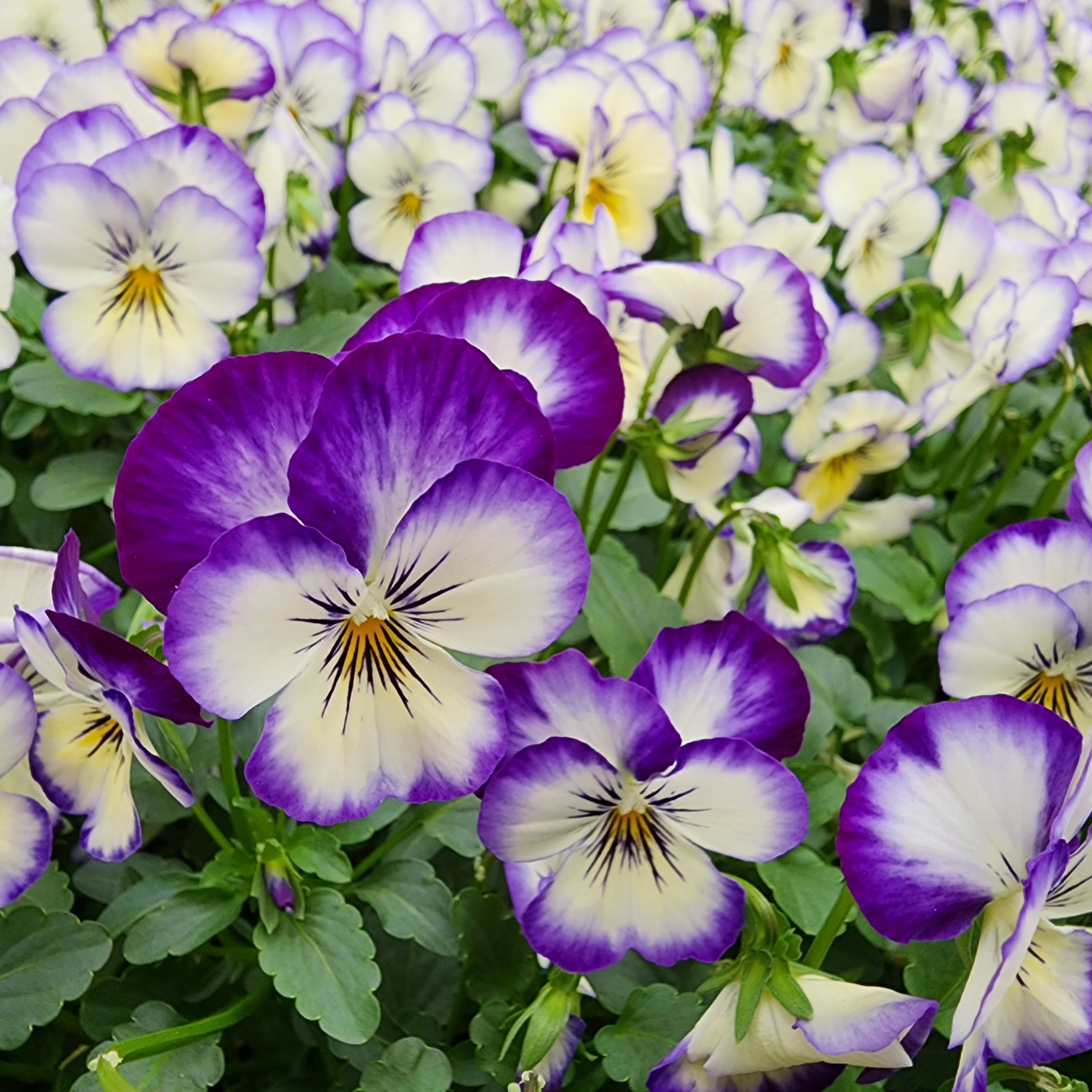As the cold grip of winter loosens its hold and the first whispers of spring emerge, gardeners everywhere eagerly prepare to breathe new life into their outdoor spaces. Among the myriad of blooms that signal the arrival of this vibrant season, few are as beloved and versatile as the pansy. With its cheerful demeanor and vibrant hues, the pansy holds a special place in the hearts of gardeners.
The Pansy: A Symbol of Spring
Pansies, viola tricolor, are annual flowering plants renowned for their colorful flowers and heart-shaped, velvety petals. Originating from Europe and Western Asia, these resilient beauties have become a staple in gardens worldwide, cherished for their ability to thrive in cooler temperatures and add a pop of color to early spring landscapes. In our region pansies can be planted in the fall and will survive through the winter, but you can also plant them in the early spring.
Why Plant Pansies in Spring?
Springtime is the perfect season to plant pansies for several compelling reasons:
1. Cool Weather Tolerance
Pansies are cold-hardy plants that can withstand cooler temperatures, making them ideal for early spring planting when the threat of frost still lingers.
2. Extended Bloom Time
By planting pansies in spring, you'll enjoy their vibrant blooms for an extended period, as they flourish in the moderate temperatures characteristic of this season.
3. Versatility
Pansies are incredibly versatile and can be used in various garden settings, including flower beds, borders, containers, and hanging baskets, allowing you to get creative with your garden design.
4. Instant Color Gratification
With their quick growth and prolific flowering, pansies provide instant gratification, injecting much-needed color and vitality into your garden after the dreary winter months.
Tips for Planting Pansies
To ensure your pansies thrive and dazzle with their vibrant blooms, here are some essential tips for planting them in spring:
1. Choose the Right Location
Pansies thrive in well-drained soil and prefer partial to full sunlight. Select a location in your garden that receives at least 4-6 hours of sunlight per day.
2. Prepare the Soil
Before planting, enrich the soil with organic matter such as compost to improve drainage and provide essential nutrients for healthy growth.
3. Planting Depth and Spacing
When planting pansies, ensure they are placed at the same depth as they were in their flats or pots. Space them 6-8 inches apart to allow for adequate airflow and prevent overcrowding.
4. Watering and Maintenance
Keep the soil consistently moist but not waterlogged, especially during dry periods. Water pansies at the base to prevent fungal diseases, and deadhead spent flowers regularly to promote continuous blooming.
5. Fertilize Regularly
Feed your pansies with a balanced fertilizer every 2-4 weeks to encourage robust growth and abundant flowering throughout the season.
Embrace the Joy of Spring with Pansies
Photos by John Morgan
Incorporating pansies into your spring garden is a delightful way to celebrate the season's renewal and infuse your outdoor space with vibrant color and charm. Whether planted in flower beds, containers, or hanging baskets, these resilient blooms are sure to captivate and inspire with their beauty and grace. So, as the world awakens from its winter slumber, seize the opportunity to plant pansies and revel in the joy they bring to your springtime sanctuary.




